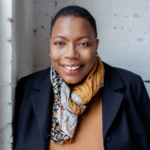When their law firm reopened at the end of the pandemic, two black women associates requested extended leave. They were the only employees at the firm to make such a request. The law firm’s human resources director was surprised. As a black woman and longtime attorney, I am not. The number of black female attorneys is so low that we are practically invisible. Because of this, our experiences are rarely, if ever, acknowledged by anyone except us. This cannot continue.
Almost four years later the coronavirus pandemic continues to ravage our mental health. It also caused a seismic paradigm shift across the world of work including the legal profession. Hopefully, these two realities will prompt a profession wide reckoning with the overall well-being of everyone in it, especially black women.
I have spent 35 years navigating the profession mostly without allies, while building my own tables and chairs along the way. I have crawled, walked in darkness, stood alone, and occasionally used a machete to create new pathways to follow, all in search of a safe work space. Because of this, I know ways through the legal profession’s woods. I did not learn these woods for my personal benefit. I have a responsibility to share what I know with the younger black women attorneys coming behind me, primarily by telling my story.
Most recently I navigated 14.5 brutal years in a psychologically unsafe and abusive work environment loaded with microaggressions. Sometimes it was traumatizing. If I had not had certain work and life experiences, I would not have survived that environment for one year let alone 14.5.
When the world shut down in the early months of the pandemic, I and millions of others began working remotely. This allowed me to simply do my job from the safety of my own home. Although I was psychologically safer, I did not allow myself to completely relax. I assumed that I would return to my office within a few weeks.
But, the pandemic raged on and I continued working remotely.
Then on December 3, 2020 I was diagnosed with COVID 19. I was released from quarantine a few days before Christmas and slowly resumed my life. One Sunday in February 2021, I experienced fatigue so intense that I was bedridden for three days. I was diagnosed with Long COVID and months later had to take short term disability leave.
According to the CDC, Long COVID “is broadly defined as signs, symptoms, and conditions that continue or develop after acute COVID-19 infection. My doctors told me that I would not survive if I returned to my job. At that time, I was so locked into following a specific path that I was determined to continue working my toxic job until retirement at the risk of my health or very life. I know that I am not alone. Then in mid June 2021, I suffered a major setback with Long COVID and was bedridden until late September.
Because of this, I could not return to work and was subsequently separated due to disability.
This brings me back to the two black women associates who requested extended leave. Black women attorneys who worked remotely were not subject to the daily onslaught of microaggressions, toxicity, and oppression for at least 2.5 years. Many black women attorneys were able to completely relax into and live as their authentic selves. Because of this, the mask and armor that black women wore to survive the pre-pandemic workplace no longer fit and will not be replaced. Black women have prioritized personal well-being and psychological safety over toxic jobs for most if not all of their working lives. For some, returning to those toxic jobs post pandemic is not an option. Still others used the pandemic to find work more aligned with their authentic selves or left the legal profession altogether.
It is possible to create psychologically safe spaces for black women attorneys and other marginalized groups within the profession without sacrificing productivity and profits. This process starts with the gatekeepers. They are the top leadership of every legal employer, including law firms, all levels of government, non-profits, and other organizations such as law schools and bar associations. The gatekeepers have the power to create safe work spaces where black women have the freedom to be well.
Unfortunately, some black women attorneys must return to traumatizing workplaces and toxic jobs. If you are amongst that number, be encouraged. Remember your toxic job is not a life prison sentence. Before you return post pandemic, begin planning your escape. In the meantime, you will survive. I survived and even thrived during my 14.5 traumatizing years in a toxic job through:
- Faith, prayer, and an extensive gospel music playlist.
- A regular Bikram Yoga practice.
- A good
- Setting firm
- Building, updating, and interacting with my professional
Now I am not suggesting that you just quit your toxic job. You must have an exit strategy. My Spelman Sister, Dr. Kimani Norrington-Sands, Ph.D founded Lifting As We Climb Consulting Wellness Services to help black women exit toxic jobs so that they can heal, thrive, and live abundantly. On her weekly YouTube program, Dr. Kimani interviews highly educated and qualified black women from a myriad of professions about how they navigated and even successfully exited toxic jobs. In addition to Dr. Kimani there are others who help black women strategize to leave toxic jobs and live the life they want. Some even raise money to send black women on sabbatical so that they can rest and recharge.
Shortly after my disability separation, I accepted a position that fits me like a glove. I am respected and trusted. My humanity is valued. It is a healing space that is my beauty for ashes. I am learning to rest. My overall well-being is important. None of this was prioritized at my former toxic job. The disability separation that I resisted actually freed me. I will not return to what broke my soul. My overall mindset is shifting. Meaning, I am no longer available for toxicity, abuse, scarcity, dysfunction, disrespect, inhumanity, to be paid less than I am worth, and anything that does not yield a tangible, meaningful, reciprocal benefit. I do not seek or want a perfect life free of problems. That does not exist. Going forward, I am only available for that which allows me to thrive, be mentally and physically healthy, be my authentic self, and live abundantly. I am daring to see myself as worthy of love and belonging. I hope that all black women attorneys, especially the two who requested extended leave, can do the same.

